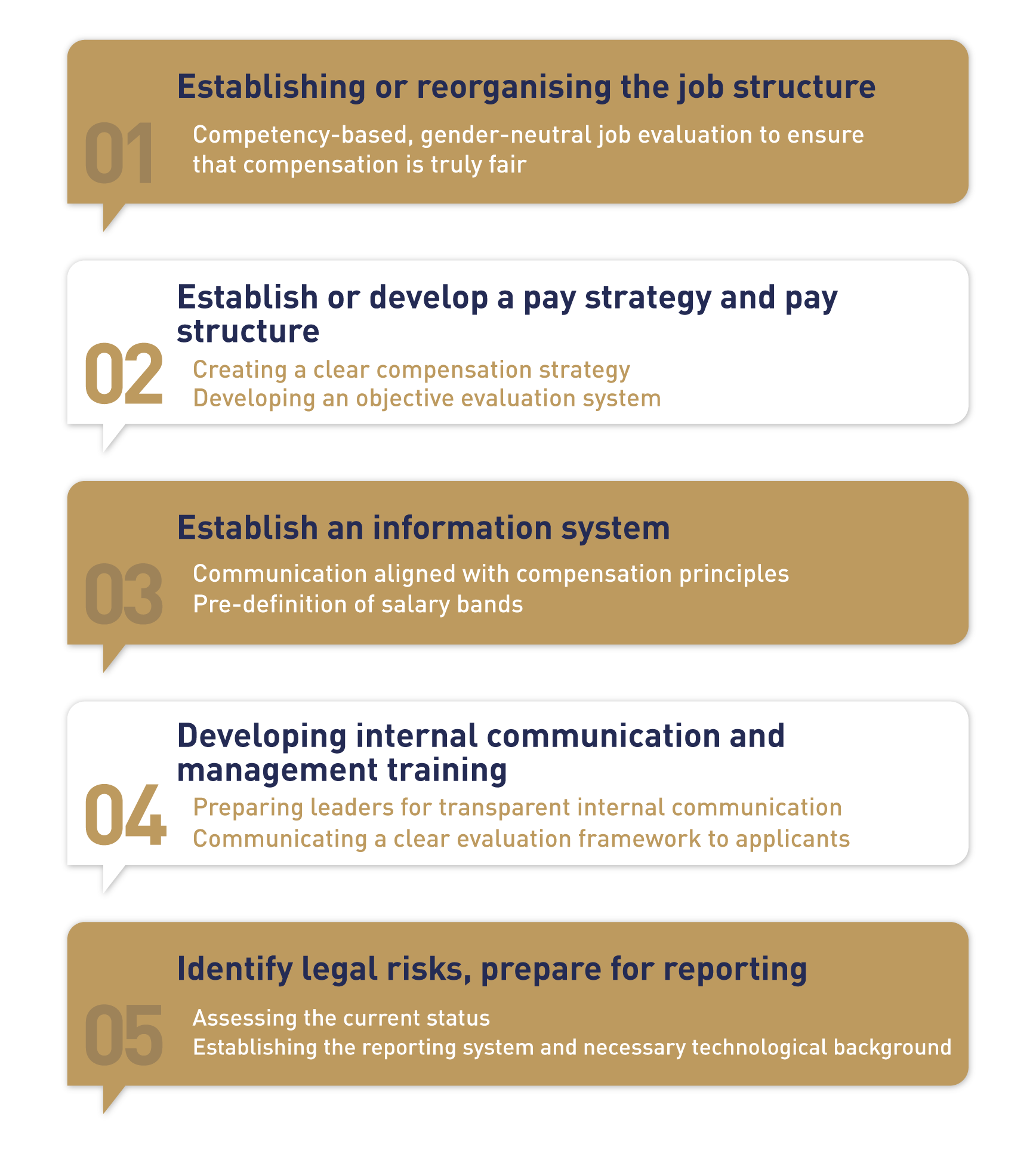Complying with the EU Pay Transparency Directive (PTD) is not just an HR project, but a comprehensive management challenge that will affect the whole company in the long term. Conscious and timely preparation not only ensures compliance, but also gives a competitive advantage in the market.

Transparency Directive (PTD), which aims to increase transparency, allowing the disclosure of gender bias and discrimination in the pay structures of a company or organisation, thus bridging the gender pay gap. The new legislation sets minimum standards that, when applied, will help to ensure fair pay structures in the labour market.

EU member states will have until 7 June 2026 to transpose the provisions of the Directive into their national law, develop the local regulatory framework and implement ex-ante compliance measures in the second half of 2026. The first pay report must be submitted by 7 June 2027 for employers with more than 150 employees. All public and private sector employers AND all employed workers in the EU are covered by the Directive, and some provisions also apply to job applicants.

Employer obligations
Gender-neutral job advertisements, information on the expected starting salary range, no questions on past remuneration data.
Employees have the right to receive information on their own pay level compared to the average pay of employees in the same or equivalent jobs, broken down by gender.
Companies with at least 150 employees will be required to report regularly and publish gender pay gap data from June 2027.
If the pay report shows that there are jobs where the gender pay gap is greater than 5%, the employer must remedy the situation.
The aim of the Pay Transparency Directive is NOT to publish specific wage data, but to establish a transparent and objective wage policy and, at the same time, a fair and consistent wage structure. Effective organisational structures and well-defined, transparent pay practices increase employee satisfaction, help retain talent and contribute to long-term improvements in company performance.

We prepare your organisation to comply with the EU Pay Transparency Directive (PTD)! The following HR tasks will be required:

Get in touch with our advisors!
Conscious preparation is essential to ensure legal compliance! Organisations are advised to start strategic and operational changes to their HR systems well in advance, at least 1 year before the entry into force. Contact us for expert support!
In the landscape of candidates and companies, all parties wish for the ‘Perfect match’. We work hard to understand our clients’ situation and business problems, so we can help them identify their objectives and expectations within a specific market context and industrial setting.
This industry is entirely about people. We understand the complexity and exquisiteness of HR challenges. We manage our assignments with delicacy and respect.
Thank you for your interest in JobGroup Prime Executive Search Services. One of our experienced consultants will get back to you in one working day.